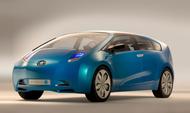Women at the wheel: what’s changed in Saudi Arabia?

One year after Saudi Arabia made the decision to allow women drivers, what has been the impact for the country’s families, communities, businesses and economy?
In June 2018, 10 women made history when they became the first Saudi Arabian females to be granted driving licenses. By January 2019[1], 40,000 female driving licenses had been issued in the country.
Rema Jawdat, one of those 10 pioneering women, said:
“It’s a dream come true… Driving represents having a choice – the choice of independent movement. Now we have that option[2].”
The decision to allow women to drive came as part of the Government’s ambitious reforms and amid a determination to deliver the economic diversity and opportunity outlined in Vision 2030. The country’s plan includes an aim to increase female participation in the workforce from 22% to 30% by 2030.
“Together we will continue building a better country, fulfilling our dream of prosperity and unlocking the talent, potential, and dedication of our young men and women… Saudi women are another great asset… we will continue to develop their talents, invest in their productive capabilities and enable them to strengthen their future and contribute to the development of our society and economy.”
Twelve months on, though, what has been the impact of a change hailed around the world? What has been the tangible and intangible impact?
Far-reaching impacts
By 2020, 15 million women are expected to be living in Saudi Arabia. Of those, 20% – or approximately three million – are projected to drive, based on demographics such as their age and income[3]. However, adding an extra three million drivers to the country’s roads in less than two years is a profound change. One whose impact is reverberating across all areas of society.
In 2017, Saudi Arabian families were spending roughly US$ 540 million each month on private drivers[4]. This spending was heightened by the increasing need for women to travel as more females entered both the public and private sector workforce. Yet while the number of private drivers appears to be facing an inevitable decline, other sectors are already seeing significant growth.
Car manufacturers, as well as those providing servicing and accessories, were all expected to see some uplift in their sales activity. By 2027, Saudi Arabia’s roads are predicted to be 20% busier than in 2017[5]. While not every new female driver will require a new car, they will certainly need both car insurance and fuel. With 61% of Saudi women intending to apply for a license – according to research released in August 2018[6] – demand in both sectors is set to soar.
Women driving should also deliver a significant economic surge. According to some estimates[7], the lifting of the female driving ban could be worth as much as US$ 90 billion in extra economic output by 2030. Ziad Daoud of Bloomberg Economics said:
“Lifting the ban on driving is likely to increase the number of women seeking jobs, boosting the size of the workforce and lifting overall incomes and output.”
Retail and leisure spend are highlighted as two areas indirectly boosted by the decision to allow women to drive[8], while the creation of a series of female driving schools will also accelerate. “We have plans to create 14 driving schools for women in different regions,” said Maj. Gen. Muhammad Al-Bassami, Director General of Saudi Arabia’s Traffic Department[9].
There are also driving employment opportunities emerging for Saudi Arabia’s women. By June 2018, ride-hailing app Careem had trained 2,000 women ahead of them being able to get driving licenses[10]. In September 2018, Uber – another popular ride-sharing company – announced plans to launch a pilot program enabling its female drivers to choose to collect only female passengers[11], should they wish to.
The decision to permit female drivers and to improve economic diversity under Vision 2030 promises to deliver enormous change to individual freedoms, household logistics, business operations and the domestic economy in Saudi Arabia.
Abdul Latif Jameel Motors, as distributor of Toyota and Lexus vehicles in Saudi Arabia, is at the center of this ongoing revolution, already deploying almost 100 female front-line staff in showrooms across the country, to advise and support car buyers with their vehicle purchases.
Abdul Latif Jameel Motors has also made it easier and more convenient for women to learn to drive, supplying over 500 Toyota vehicles to driving schools at Princess Noura Bint Abdulrahman University in Riyadh, King Abdulaziz University in Jeddah, Imam Abdulrahman bin Faisal University in Dammam and Tabuk University, as part of is ‘Together from the Start’ initiative.
Through its partnership with Toyota, it also took part in a series of roadshows and forums aimed at introducing women to the ins and outs of driving in the country, including a program of workshops on safety and basic car maintenance.

Women take part in a motor roadshow in Saudi Arabia learning about road safety, car maintenance and trialling vehicles.
Similarly, Abdul Latif Jameel Insurance has started recruiting female sales executives to cater to rising demand for vehicle insurance. By June 2019, 25% of sales agents were women and during Q1 2019, over 6% of motor insurance policies were sold to women. It also partnered with Axa Insurance in June 2018 in a campaign to offer women a 20% reduction on the cost of a motor insurance policy.

Shahad Wail AlQurashi, a Saudi national and Marketing Communications Manager at Abdul Latif Jameel Commercial Development Co. in Jeddah, has obtained her own driving licence in the last year; she stated:
“Allowing women to drive has been a significant milestone for Saudi Arabia as it is a step further forward to women being recognised for the important role they play in society. Since the ban was lifted, I have applied for my licence and taken and passed my test – the feeling of independence and pride when I took my first drive was incredible. The lifting of the ban is about so much more than driving – now we see more women joining the workplace as the logistics of doing so are easier now, and more and more of my colleagues are female. I am truly proud of both my country, and to work for a company who is so supportive of this continuing move towards inclusivity.”
[1] 40,000 driving licenses issued to Saudi women, Saudi Gazette, January 9, 2019
[2] Saudi Arabia issues first driving licenses to women, BBC, June 5, 2018
[3] Women driving the transformation of the KSA automotive market, PwC, March 2018
[4] Private drivers cost Saudi families more than SR2 billion monthly, Saudi Gazette, August 1, 2017
[5] The real winners from Saudi’s new stance on women drivers, The National, October 22, 2017
[6] Saudi women driving auto insurance growth, Oxford Business Group, October 6, 2018
[7] Saudi Arabia’s $90 Billion Reason to Allow Women to Drive, Bloomberg, June 24, 2018
[8] Women driving the transformation of the KSA automotive market, PwC, March 2018
[9] 40,000 driving licenses issued to Saudi women, Saudi Gazette, January 9, 2019
[10] We Took a Ride With Saudi Arabia’s First Women Taxi Drivers, Time, June 25, 2019
[11] Why Uber has only ‘a handful’ of woman drivers in Saudi Arabia, while local rival Careem claims more than 2,000, CNBC, October 20, 2018





